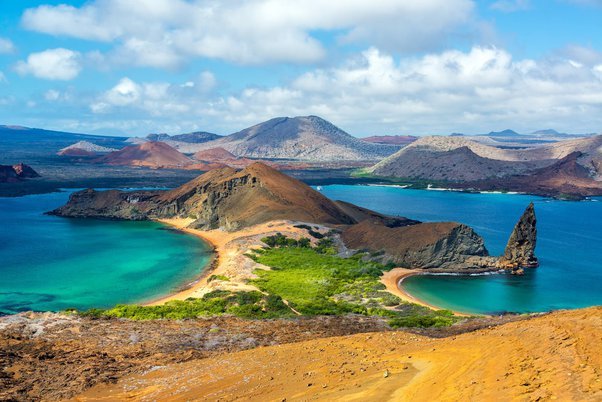Galapagos Island | An Example of Responsible Ecotourism

One of the primary responsibilities of ecotourism is to minimize negative impacts on the environment and local communities while maximizing the benefits for conservation and sustainable development. An example that illustrates this responsibility is the ecotourism efforts in the Galapagos Islands.
The Galapagos Islands, located off the coast of Ecuador, are renowned for their unique biodiversity and played a pivotal role in Charles Darwin’s theory of evolution. However, the delicate ecosystems of the islands face numerous threats from human activities, including habitat destruction, invasive species, and over fishing.
To address these challenges, ecotourism has been promoted as a sustainable way to experience the Galapagos Islands while supporting conservation efforts. Several responsible tourism practices have been implemented to ensure that tourism benefits local communities and helps protect the breakable environment:
Visitor Management
Strict regulations are in place to limit the number of visitors allowed in the Galapagos Islands at any given time. This helps prevent overcrowding and minimizes the impact on sensitive ecosystems and wildlife.
Educational Programs
Ecotourism operators in the Galapagos Islands often provide educational programs and interpretive guides to raise awareness about the importance of conservation and biodiversity. Visitors learn about the unique flora and fauna of the islands and the efforts being made to protect them.
Community Involvement:
Local communities are actively involved in ecotourism initiatives, providing employment opportunities and benefiting from revenue generated by tourism activities. This helps incentivize conservation efforts and fosters a sense of stewardship among residents.
Sustainable Practices
Ecotourism operators in the Galapagos Islands adhere to sustainable practices such as waste management, energy conservation, and responsible wildlife viewing. They also support local businesses and prioritize purchasing goods and services from sustainable sources.
Conservation Funding
A portion of the revenue generated from ecotourism in the Galapagos Islands is allocated to conservation projects and habitat restoration efforts. This funding supports research, monitoring, and enforcement of environmental regulations.
By embracing ecotourism principles, the Galapagos Islands have managed to balance the needs of tourism with the preservation of their unique natural heritage. Visitors can experience the beauty and diversity of the islands while contributing to their long-term sustainability and protection.
You may like these posts …
